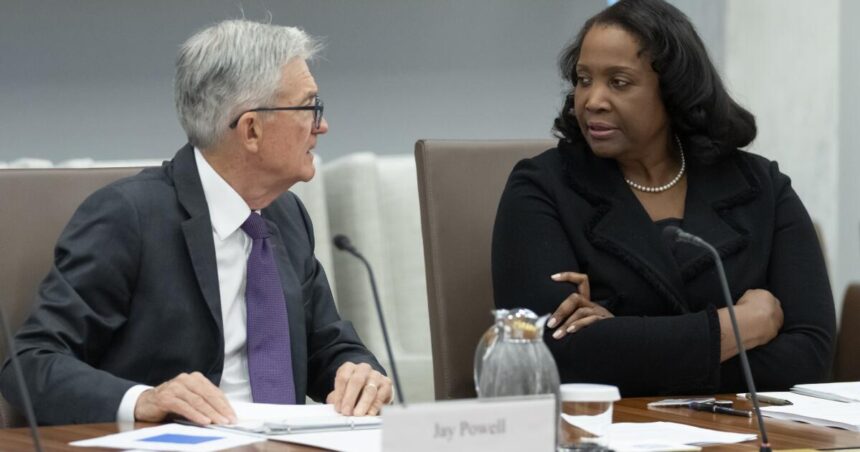The Trump administration is intensifying its efforts to remove Lisa Cook from her position on the Federal Reserve’s Board of Governors, having filed a renewed request with a federal appeals court this past Sunday. This move comes as the Fed prepares for a crucial vote on interest rates, heightening the stakes involved in the ongoing legal battle.
The administration’s response, submitted to the U.S. Court of Appeals for the District of Columbia, contends that Cook’s legal arguments for remaining in her role are without merit. This development adds a new layer to an unprecedented effort by the White House to exert influence over the traditionally independent central bank. If successful, this would mark the first instance in the Federal Reserve’s 112-year history where a president has attempted to fire a sitting governor.
Trump’s attorneys have argued that maintaining the integrity of the Federal Reserve necessitates that the president’s statutory authority to remove governors “for cause” is respected. They emphasize that this authority is important for both the public and the executive branch.
The basis for Cook’s potential removal stems from accusations made by Bill Pulte, a Trump appointee involved with the entities regulating mortgage institutions Fannie Mae and Freddie Mac. Pulte alleges that Cook misrepresented her status regarding properties in Atlanta and Ann Arbor, suggesting that she claimed both as “primary residences.” He has filed a criminal referral with the Justice Department, which is now conducting an investigation based on his allegations.
In her defense, Cook has characterized the Ann Arbor property as a “vacation home” in loan documents, a detail that could challenge the claims of mortgage fraud insinuated by the Trump administration. Additionally, documentation obtained by the Associated Press indicates that Cook referred to the property as a “second home” in security clearance applications.
Cook has actively contested her removal, filing a lawsuit against the Trump administration. A federal judge ruled in her favor last Tuesday, determining that the administration’s attempts to fire her were illegal and reinstating her position on the Fed’s board. Following this ruling, the Trump administration quickly appealed the decision and sought an emergency ruling in light of the Federal Reserve’s upcoming meeting, where many economists anticipate the central bank will lower its key interest rate by a quarter point.
As the situation continues to unfold, the intersection of legal proceedings and monetary policy remains a focal point of discussion, raising broader implications regarding the independence of the Federal Reserve and its governance.






